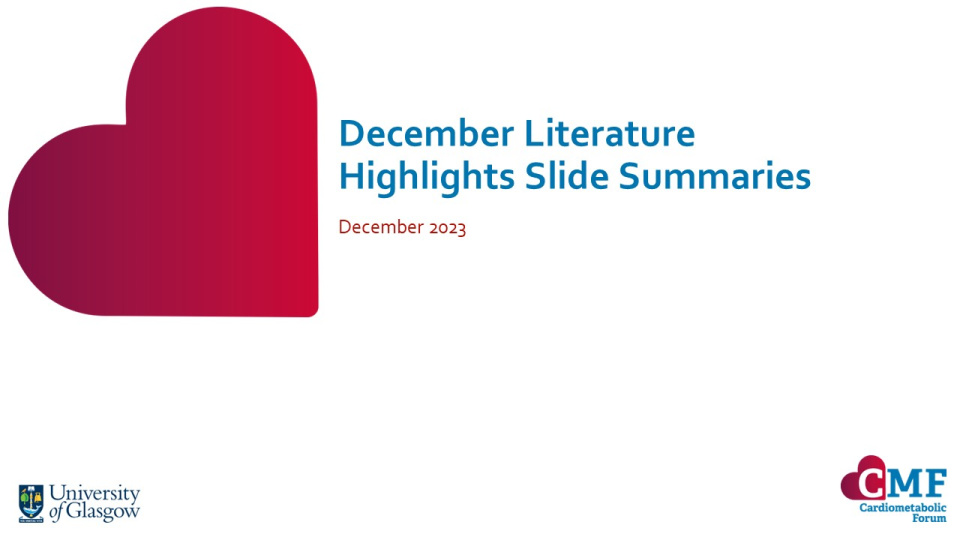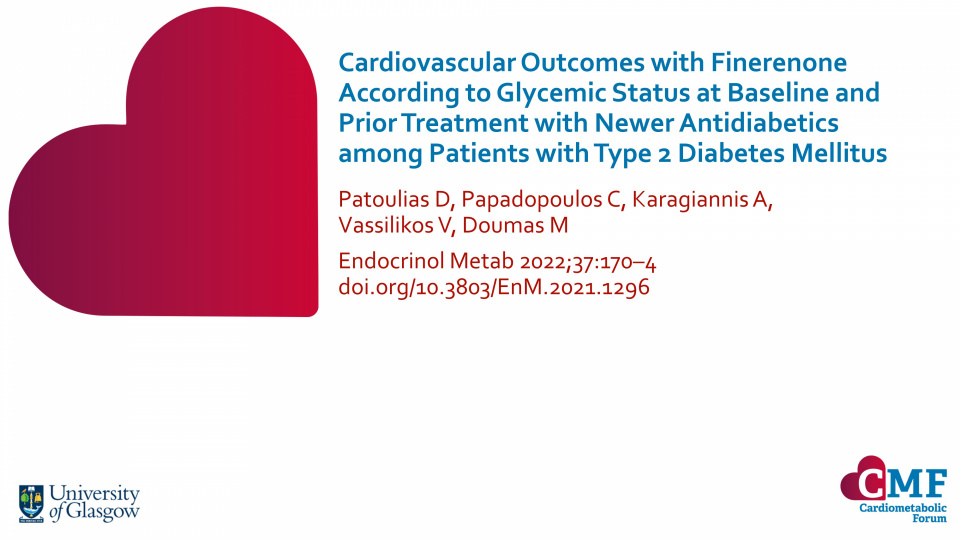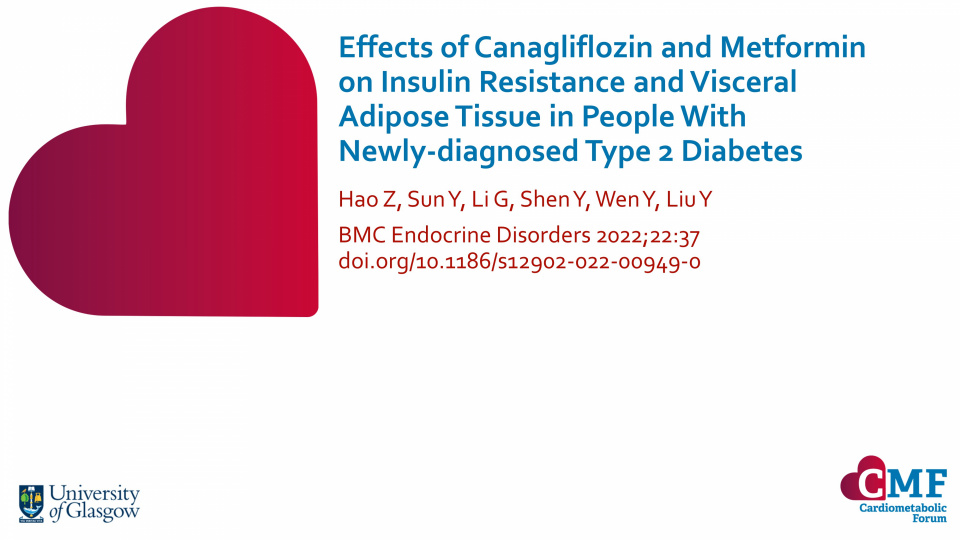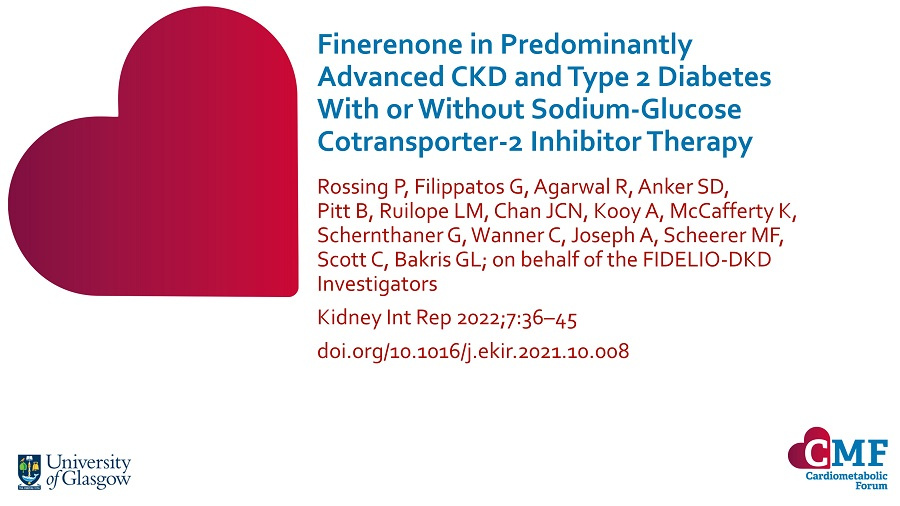Publications
Stay up to date with our literature reviews which are curated by experts to feature the most important publications released each month. Explore our publications for access to concise summary slides for your own use.
Cardiovascular Outcomes with Finerenone According to Glycemic Status at Baseline and Prior Treatment with Newer Antidiabetics among Patients with Type 2 Diabetes Mellitus
Endocrinol Metab 2022;37:170–4; doi.org/10.3803/EnM.2021.1296
Finerenone induced a 13% risk reduction in MACE (a composite of death from CV causes, nonfatal myocardial infarction, nonfatal stroke, or hospitalisation for heart failure) regardless of prior glycaemia. There was no difference in finerenone-derived MACE benefits whether patients were on baseline SGLT2i or GLP-1RA or not.
Effects of Canagliflozin and Metformin on Insulin Resistance and Visceral Adipose Tissue in People With Newly-diagnosed Type 2 Diabetes
BMC Endocrine Disorders 2022;22:37 doi.org/10.1186/s12902-022-00949-0
In this study of patients with newly-diagnosed (<6 months) T2D, canagliflozin was associated with reduced insulin resistance and visceral adipose tissue compared with placebo.
Finerenone in Predominantly Advanced CKD and Type 2 Diabetes With or Without Sodium-Glucose Cotransporter-2 Inhibitor Therapy
Kidney Int Rep 2022;7:36–45 doi.org/10.1016/j.ekir.2021.10.008
Finerenone was associated with a 31% greater reduction in urine albumin:creatinine ratio (UACR) from baseline to Month 4 versus placebo. With similar reductions in UACR seen whether the patient was receiving SGLT2i at baseline or not.




